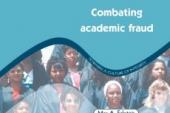How to develop successful codes of ethics for higher education institutions?

Corruption in higher education takes many forms and affects students, academic and non-academic personnel, as well as their research. Integrity risks can include, for example, fraud during university admissions, cheating and plagiarism during exams and assignments, favouritism when university personnel are hired or promoted, or university procurement.
Many institutions have developed codes of conduct to address issues of unethical behaviour. These codes can either be comprehensive or address specific aspects of university life. These can include the rights and duties of students, norms of behaviour for university staff – both academic and non-academic – or they can define standards of good research to avoid plagiarism and academic fraud.
The University of Duisburg Essen, with the financial support of the German Academic Exchange Service (DAAD), organised a workshop entitled Fair Play and Equal Chances at Higher Education Institutions. Diverse Perspectives from Germany, Georgia, Moldova and Ukraine in July 2018. Young academics and professionals from the four countries were invited to work together to develop recommendations for a code of conduct for their respective countries or universities.
At the invitation of the Interdisciplinary Corruption Research Network (ICRN), IIEP presented some of the integrity challenges commonly faced by higher education institutions, the values and standards that are incorporated into different codes of conduct, and the aspects that need to be taken into account when introducing an effective code of conduct.
Muriel Poisson stressed that:
The process used when developing and adopting a code is central to its success. It is crucial that all stakeholders are included in a consultative process in order to obtain real ownership of the codes.
During IIEP managed sessions, participants discussed which integrity risks are most prominent in their respective institutions and what measures should be implemented first in order to improve academic integrity in higher education in their respective countries.
Following the two-week workshop, participants draw up a final resolution “to foster the culture of integrity across higher education institutions and respective national authorities, which includes recommendations “based on the fundamental values of accountability, transparency and participation”. This final document addresses responsibilities of key stakeholders, including for example:
- the government’s duty to adopt the necessary legal framework to strengthen academic integrity;
- universities’ obligations to put in place an “academic integrity infrastructure” together with a code of honour and ethics committees; as well as
- student and staff responsibilities to fight corruption in higher education institutions.
The resolution discusses also three concrete examples of ethical dilemmas in HEIs and suggests possible measures and solutions to handle or avoid these cases of integrity violations. Finally, the participants of the workshop listed in the resolution key considerations for a communication strategy to fight corruption in higher education institutions.
Access the resolution here
Read the ETICO blog post written by Ana Moraru, one of the participants from Moldova, highlighting the major outcomes of the workshop!


